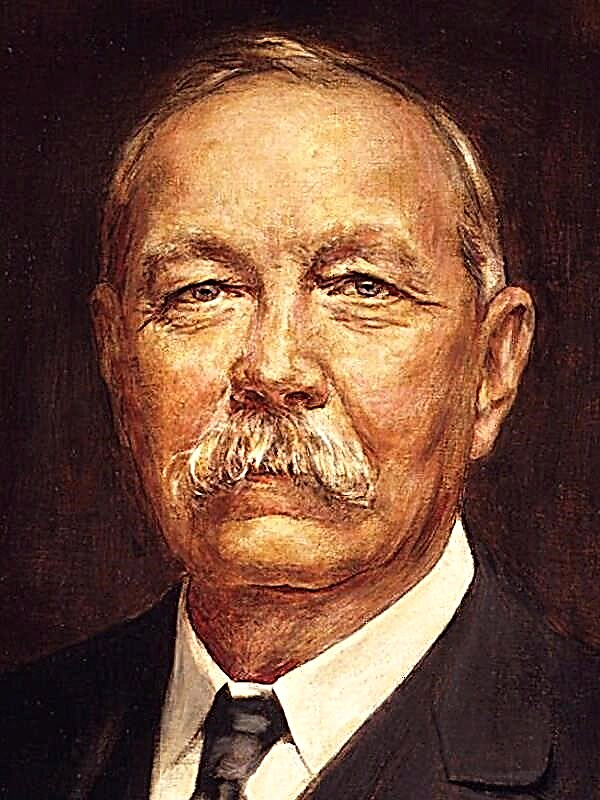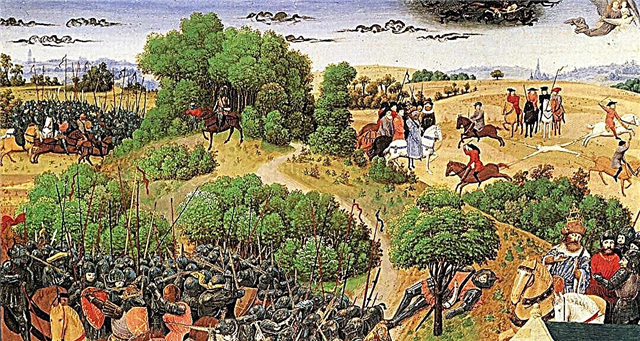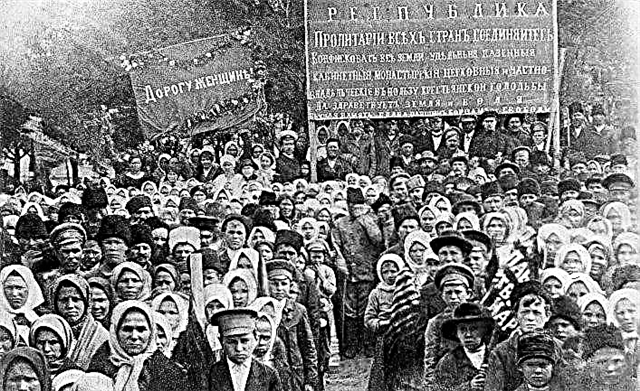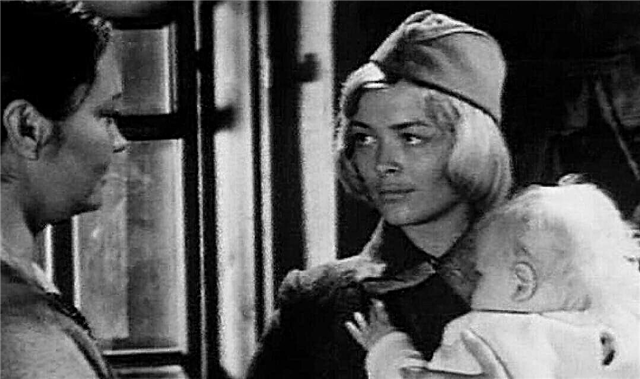The comedy takes place in the London apartment of a young gentleman Algernon Moncriff, a member of an aristocratic family, and on the estate of his bosom friend Jack Warding in Wulton, County Hertfordshire.
Bored Algernon, waiting for tea with her aunt Lady Bracknell and charming daughter Gwendolen, exchanges lazy remarks with her lackey Lane, an equally hedonist and lover of philosophizing. Suddenly, his loneliness is interrupted by the appearance of his longtime friend and constant rival opponent in all endeavors, the judge of the peace and the owner of the vast rural estate, Jack Warding. It soon turns out that, fed up with secular and official duties (an eighteen-year-old pupil is also in charge of Warding), both play the same game in front of others, they only name it differently: Jack, trying to break free from home, says that he is going " to his younger brother Ernest, who lives in Albany and now and then gets into terrible trouble ”; Algernon, in similar cases, refers to "the ever-sick Mr. Banbury, in order to visit him in the village when he pleases." Both are incorrigible narcissists and are aware of this, which does not prevent them from accusing each other of irresponsibility and infantility when necessary.
“Only relatives and creditors call in Wagnerian way,” says Algernon of the ladies who came to visit him. Taking the opportunity, Jack translates the conversation into matrimonial topics: he has long been in love with Gwendolen, but does not dare to admit to the girl his feelings. Distinguished by his excellent appetite and equally indestructible penchant for love affairs, Algernon, who takes care of his cousin, is trying to portray an offended virtue; but here the calmly talkative lady Bracknell comes into play, putting the new applicant on the hand of her daughter (the one endowed with remarkable practicalism and common sense, has already managed to give Mr. Worth preliminary consent, adding that her life’s dream was to marry a man named Ernest: “There is something in this name that inspires absolute confidence”) is a real interrogation with a focus on the property aspects of his well-being. Everything goes well until it comes to the line of the magistrate. He not without embarrassment admits that he is a foundling, brought up by a compassionate squire, who discovered him ... in a bag, forgotten in a locker at Victoria's London station.
“I highly recommend you <...> get relatives <...> and do it before the end of the season," advises Jack, the unflappable lady Bracknell; otherwise marriage with Gwendolen is impossible. Ladies are removed. However, after some time, Gwendolen will return and prudently write down the address of Mr. Warding's estate in the province (information invaluable for discreetly listening to their conversation Algernon, burning with a desire at all costs to get acquainted with the charming pupil of Jack Cecily - an intention that is not encouraged in any way Warding, glad about the moral improvement of his ward). Be that as it may, both pretending friends conclude that both the "dissolute younger brother Ernest" and the "ever-sick Mr. Banbury" are gradually becoming an undesirable burden for them; in anticipation of the bright future prospects, both give the word to get rid of the imaginary "relatives".
Fads, however, are not at all the prerogative of the stronger sex. For example, the dreaming Cecily misses the wordings of geography, political economy and German, for example, repeating what Gwendolen said in word for word: “My maiden dream was always to marry a man named Ernest ". Moreover: she mentally engaged to him and keeps a casket full of his love letters. And no wonder: her guardian, this boring pedant, so often indignantly recalls her "dissolute" brother, that he is portrayed to her as the embodiment of all virtues.
To the amazement of the girl, the subject of her dreams appears in the flesh: of course, this is Algernon, soberly calculating that his friend will stay in London for a few more days. He learns from Cecily that the "stern older brother" decided to send him to Australia for correction. Between young people there is not so much a love acquaintance, but a kind of verbal design of what was dreamed and dreamed of. But Cecily did not have time, sharing the good news with the governess Miss Prism and Jack's neighbor Canon Cesiubl, to seat the guest at a plentiful village meal, as the owner of the estate appears. He is in deep mourning, and his appearance is sad. With the appropriate solemnity, Jack announces to his children and household about the untimely death of his impolite brother. And the "brother" looks out of the window ...
But if this misunderstanding is still managed to be somehow settled with the help of the exalted old governess maiden and the good canon (both rival friends appeal to him, declaring, one after another, about the passionate desire to be baptized and be named the same name : Ernest), with the advent of Gwendolen on the estate, claiming that she did not suspect Cecily that she was engaged to Mr. Ernest Warding, total confusion reigns. In support of her own innocence, she refers to an announcement in London newspapers, the other to her diary. And only the alternate appearance of Jack Warding (exposed by an innocent pupil who calls him Uncle Jack) and Algernon Moncriffe, which his own cousin ruthlessly exposes, brings a note of discouraged calmness into confused minds. More recently, the fairer sex, ready to tear each other, is an example of true feminist solidarity to friends: both of them, as always, were disappointed by men.
However, the offense of these gentle creatures is short-lived. Upon learning that Jack, in spite of everything, intends to undergo the baptismal ceremony, Gwendolen generously remarks: “How stupid all the talk about gender equality. When it comes to self-sacrifice, men are immeasurably superior to us. ”
Lady Bracknell suddenly appears from the city, to whom Algernon immediately spreads the good news: he intends to marry Cecily Cardew.
The reaction of the venerable lady is unexpected: she is definitely impressed by the pretty profile of the girl (“The two most vulnerable points of our time are the lack of principles and the absence of a profile”) and her dowry, which was before origin ... But then someone mentions the name Miss Prism and the lady Bracknell is wary. She certainly wants to see the eccentric governess and recognizes in her ... the impolite servant of her late sister who disappeared twenty-eight years ago, who was guilty of losing her child (instead of him, they found a manuscript of a three-volume novel, "to the nausea of a sentimental"). She humbly admits that, because of absent-mindedness, she placed the child entrusted to her in a bag, and handed over the bag to a locker at the station.
Rush at the word "bag" comes the turn of Jack. A few minutes later he triumphantly demonstrates to the audience the household attribute in which he was found; and it turns out that he is none other than the eldest son of a professional military man, the nephew of Lady Bracknell and, accordingly, the older brother of Algernon Moncriff. Moreover, as registration books testify, at birth he was named in honor of his father, John Ernest. So, as if obeying the golden rule of realistic drama, in the finale of the play all the shots are fired, which were presented to the audience at its beginning. However, the creator of this brilliant comedy, who sought to turn it into a real celebration for contemporaries and descendants, hardly thought of these canons.












